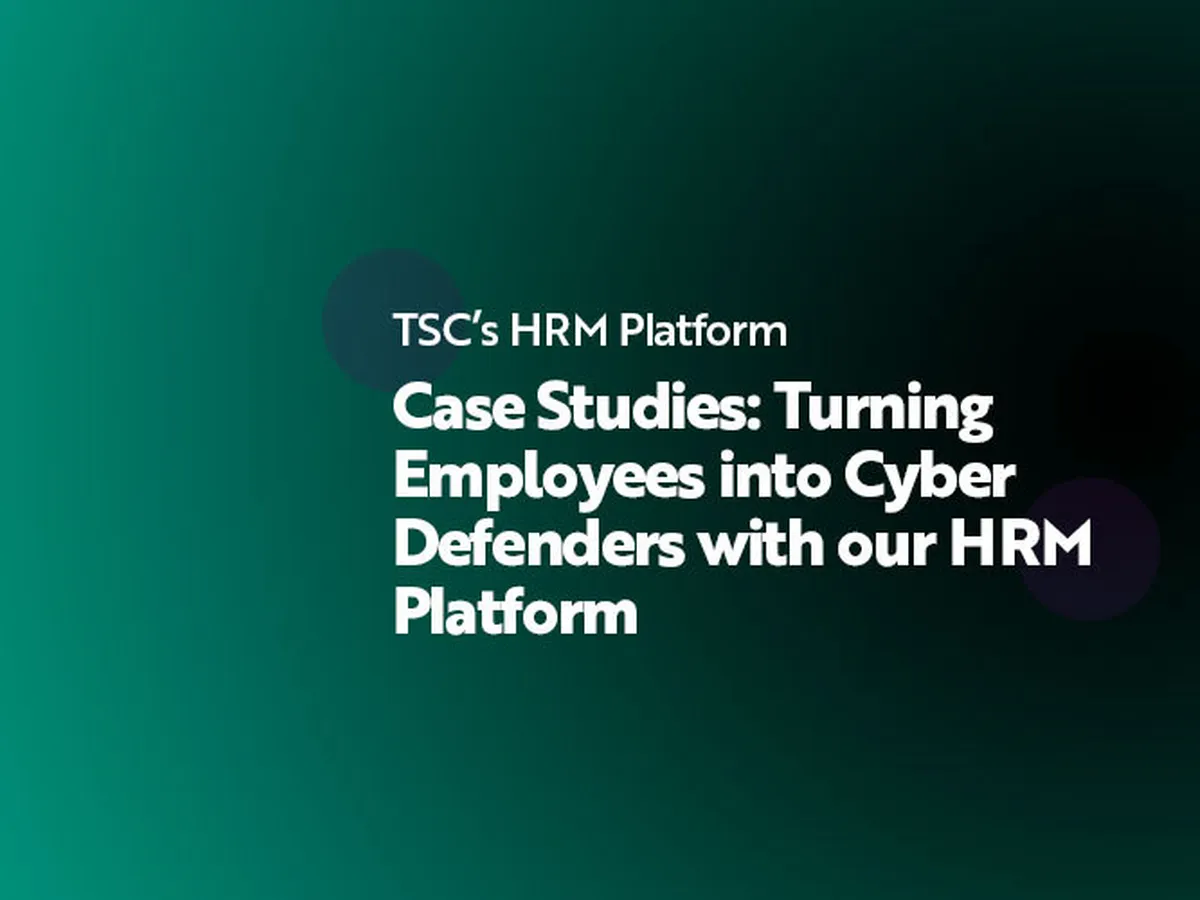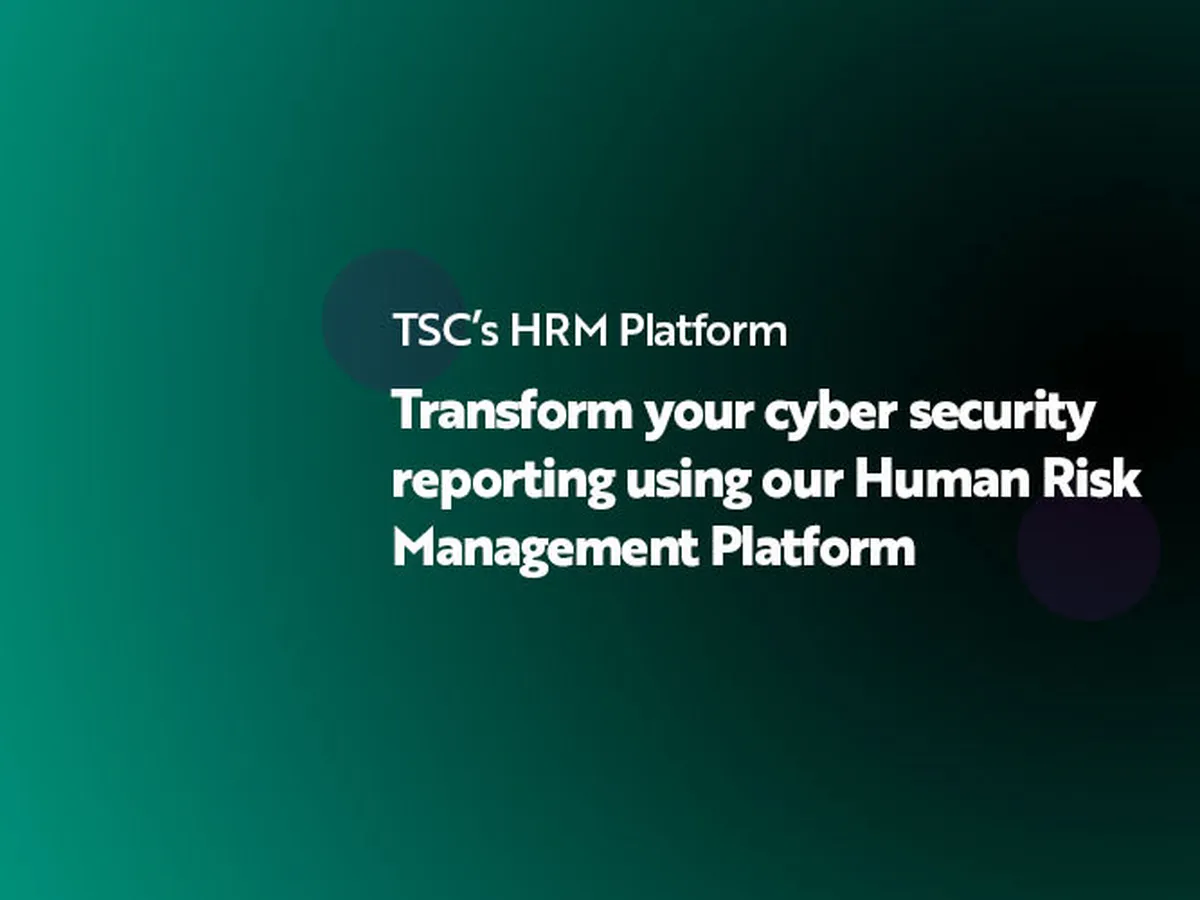
- Employee awareness
- 3 min read


In today's digital landscape, the demand for engaging and fun security awareness training is essential in every industry. Every sector, from finance to healthcare, faces unique cyber challenges, yet often, cyber security training fails to engage its audience.
Research indicates that an overwhelming 85% of security breaches stem from human error. This statistic highlights a significant challenge: transforming routine cybersecurity education into an engaging and enjoyable learning experience.
This article will explore various strategies to infuse fun and engaging activities into cybersecurity training. We'll reveal practical tips and creative ideas to transform standard cybersecurity education into a more dynamic and enjoyable experience.
Cyber security training doesn't have to be a tiresome affair. Here are six enjoyable and interactive training activities to transform how your team learns about cyber security.
Gamification adds a dynamic twist to cyber security training, making it highly interactive and enjoyable. By incorporating elements like quizzes, point systems, and leaderboards, learning becomes not just informative but also engaging and competitive.
At The Security Company, we offer a selection of cyber security training games, each designed to boost participation and add an exciting dimension to your training. We can also brand these games specifically for your organisation and develop new, bespoke games for your training plan.
The inclusion of gamification enhances engagement whilst making cybersecurity training a genuinely enjoyable experience for everyone involved.
Incorporating collective learning into cyber security training can be highly effective, especially in businesses with close-knit teams. Allocating specific times for groups to collectively engage in cyber security training activities, in-person or virtually, enhances focus and fosters team cohesion.
Group discussions and workshops are essential to this approach, encouraging interactive learning and problem-solving. These activities foster an inclusive setting where team members can exchange ideas and enhance their understanding of cybersecurity concepts.
Additionally, a recent Eduflow survey revealed that 60% of L&D practitioners believe collaborative learning is essential to an organisation's effectiveness.
Collective learning is adaptive to various working models, whether hybrid, remote or in-office. This strategy is a simple and easy way to increase the efficacy of cyber training for employees whilst building stronger team relationships.
Engaging employees in hands-on cyber security activities is a powerful way to enhance their understanding and response to cyber threats. By introducing interactive elements like simulated phishing exercises, you can provide practical, real-world experiences that solidify theoretical knowledge.
Simulated phishing exercises are a prime example of this approach. These activities involve sending mock phishing emails to employees and measuring their responses. This tests their ability to identify phishing attempts and provides immediate feedback on areas that need improvement. Such exercises can be both eye-opening and educational, offering a safe space for learning from mistakes.
Further, team-based cybersecurity challenges can foster a spirit of collaboration and friendly competition. These challenges could include identifying vulnerabilities in a mock network setup or working together to develop a response plan for a hypothetical data breach scenario. These practical exercises encourage teams to apply their knowledge hands-on, enhancing learning through active participation.
To enhance your cybersecurity training with practical activities, our Develop Knowledge and Skills Subscription offers an ideal solution. This subscription allows you to tailor your cyber awareness training plan with interactive, personalised, and hands-on team activities.
Implementing reward systems has proved to be an effective strategy in making cyber training more engaging and fun. This approach motivates employees and significantly boosts their involvement in the learning process.
One approach is to promote prizes for the first three individuals who complete the training with a 100% pass rate on their first attempt.
Another strategy is to incorporate a prize draw. For example, the first ten employees to achieve a 100% pass rate get entered into a draw to win a special prize.
These methods can encourage faster and more focused training, as employees strive to excel with completion.
Beyond these, simple acknowledgements such as awarding certificates or badges are a testament to employees' commitment to learning and cybersecurity culture.
It's crucial to recognise that various roles in a company face distinct cybersecurity challenges, necessitating a move away from a generic, ‘one size fits all’ training strategy. Specific training tailored to the unique threats faced by different roles greatly enhances awareness and preparedness.
For instance, the challenges a customer service representative may face are distinct from those of a manager. It's essential to consider these role-specific differences and the diverse levels of existing knowledge when developing your cyber awareness programs. When training is personalised to each role, it becomes more relevant, leading to higher retention and participation levels.
Implementing targeted and role-based training is an effective solution to address these needs. While targeted training addresses organisational weaknesses, role-based training focuses on specific threats and requirements of individual roles. This approach ensures that every team member receives the training that's most relevant to them.
By ensuring that your employees are trained on topics that directly apply to their roles, you'll notice a positive shift in your organisation's cyber security culture. Employees will find the training more relatable, leading to increased focus and a deeper understanding of the material.
Hosting a 'Cybersecurity Day' presents an unusual but fun approach to cyber awareness training, especially in a hybrid working environment. This dedicated day could offer engaging training activities where teams come together to enhance their security awareness skills. Promoting the experience with lunches, refreshments, and prizes for completing training can turn previously dreaded learning into an enjoyable team event.
To make your 'Cybersecurity Day' even more inclusive, consider these activities:
Trivia "Pub Quiz"
Scavenger Hunt
Interactive Videos
Online Cyber Security Games
Cyber Simulations
Training Leaderboard
Incorporating these activities into a 'Cybersecurity Day' enriches the training experience whilst encouraging a culture of proactive learning and collaboration, building a resilient, cyber-aware organisation.
At The Security Company, we understand that the principles of successful training lie not just in the transfer of information but in how it is delivered and received. Our programmes increase employee participation, engagement, and enjoyment, turning a routine task into a valuable learning experience.
Our approach to security awareness training is elaborate, combining the latest knowledge and skill development methodologies with a keen understanding of behavioural change and cultural security. We believe security training should resonate with the audience, relate to their daily experiences, and provide practical, actionable knowledge. To achieve this, we utilise engaging materials and activities, from interactive games and quizzes to immersive simulations and scenarios designed to captivate and educate.
To learn more about how TSC can make your cybersecurity training a fun and impactful experience, or to explore our range of services, contact us today. Let's collaborate to create a secure, informed and engaged workplace.
Transforming cyber awareness training into a fun and engaging experience is crucial for effective learning and retention. Methods like gamification, personalised materials, and interactive activities are critical to enhance learning. By tailoring content to suit different roles, training becomes more effective by resonating with each participant. These strategies, when combined, are instrumental in encouraging a well-informed and alert cyber-secure workforce.



© The Security Company (International) Limited 2025
Office One, 1 Coldbath Square, London, EC1R 5HL, UK
Company registration No: 3703393
VAT No: 385 8337 51


